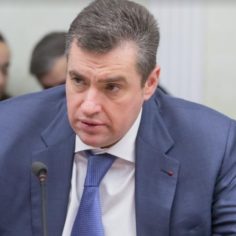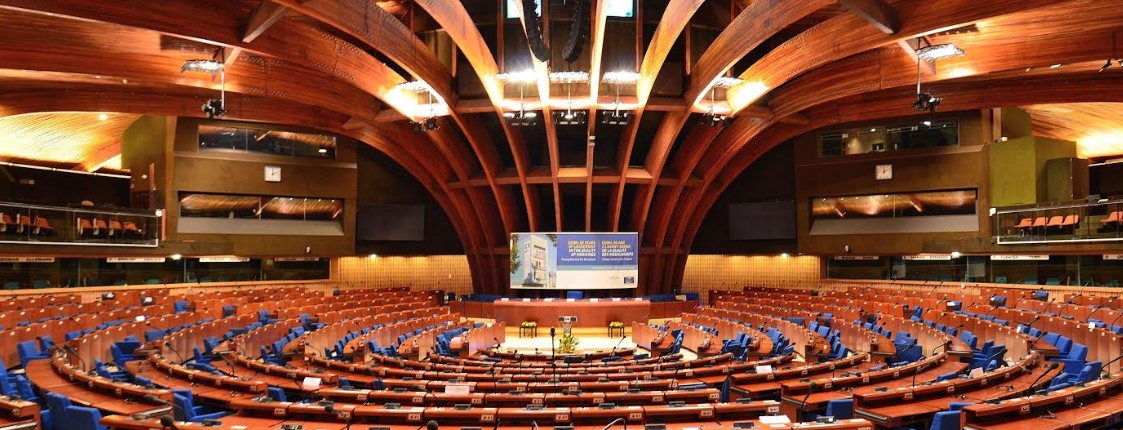On June 28, the Parliamentary Assembly of the Council of Europe (PACE) ended its summer session, which will be remembered for a long time: after many hours of discussion, Russia had returned to PACE. That event was a great thunder-clap as over past five years relations between Moscow and Strasbourg seemed to have been extremely confusing.
In 2014 -2015, Russia was deprived of basic powers in PACE because of the Crimean events. More specifically: in April 2014, the PACE had deprived the Russian delegation of the right to vote and excluded its representatives from all the governing bodies of the Assembly in connection with the Russian “annexation” of Crimea.
Moscow continued to cooperate with the Council of Europe, but the matter did not sit well with PACE. Being blinded by the Ukrainian vector, the Assembly did not hear the arguments of the Russian side. Each session turned into an endless anti-Russian monologue in which the deputies, who dared to recall the need for dialogue, were booed by their “pro-Ukrainian” colleagues.
At the end of June 2017, the Russian side decided to suspend payment of part of its contribution until the delegation of the Russian Federation would receive their credentials again. Since that moment, PACE rhetoric had been enriched with statements of “the Russians owe us”.
But at the end of 2018, along with the recognition of the financial crisis in the Council of Europe, there had been appearing more and more reminders that the dialogue with Russia was improving. And the process had got off the ground.
By May 2019, foreign ministers of more than 30 states (out of the 47 member countries of the Council of Europe) spoke in favour of the equal participation of all member states in the statutory bodies of PACE, which gave a chance of lifting sanctions against Russia. For the June session, PACE presented a report with an offer of return to the Russian delegation, including all powers. Ukrainian delegates had a hard time trying to resist this offer – they made 222 amendments to a text of the report.
On June 25, during nine hours with two breaks for eight and nine minutes, PACE was bursting with discussion, voting and rejecting the amendments. Finally the assembly officially invited an already-formed Russian delegation to PACE with a full-powers package.
Moreover, according to the decision taken by the Assembly, the principle of imposing sanctions against national delegations for various violations had been abolished. The Russian right to submit the list of their delegation for approval right in the middle of the year was specifically provided for by the resolution.

The dare devil from Russia: Leonid Slutzky, Chairman of the Russian State Duma Committee on International Affairs. The Council of the Federation of the Federal Assembly of the Russian Federation (CC-BY 4.0)
The Russian delegation even managed to vote for both a new General Secretary and a Vice-Speaker of the Assembly. To the disappointment of the Russian delegates, Leonid Slutsky, the Chairman of the Russian State Duma Committee on International Affairs, had failed to be voted into the position of PACE Vice-President. But he didn’t seem too upset as he made a statement with a clear message.
“By a qualified two-thirds majority, the Parliamentary Assembly of the Council of Europe made the first significant step in recognizing Crimea as a Russian state by the Council of Europe.”
Certainly, far from everyone was satisfied by Russia returning to PACE. The delegation of Ukraine, deceived in its expectations, left the PACE session right after Russia membership had been restored with full powers — as if Ukraine had recognized that it needed the Assembly only for the anti-Russian game.
Ukrainian outrage because of the lifting of sanctions against Russia was shared by the delegations of Estonia, Georgia, Latvia, Lithuania, Poland, Slovakia – basically, a typical list of countries which are traditionally dedicated to anti-Russian rhetoric. But there was a bunch of surprises: among those who supported the Russian readmittance to PACE there were British prime minister Theresa May, the German foreign ministry, Belgian MEP Petra De Sutter and many others. Even the harshly anti-Russian British newspaper The Independent had to admit that “restoration of Russian voting rights at PACE cancels for the first time ever the sanction imposed against Moscow because of the seizure of Crimea”.
Possible reasons and motives for Russia’s return to PACE have raised great interest. For now, there are several of them.
The Ukrainian delegation at PACE presented an opinion that a main reason which prompted PACE to lift anti-Russian sanctions was money — and it’s not about a banal bribe from the Russian side. At the moment, Russia’s debt to the organization is about 75 million euros, which is why the PACE budget deficit is already 1,5 million euros.
A member of the Ukrainian delegation at PACE, Borislav Bereza, considers that some delegations supported the resolution because of fears that in the future they would themselves fall under sanctions similar to the ones the Russian Federation faced – while the resolution provides for conceptually avoiding this problem.
On the other hand, supporters of lifting the sanctions did not press the financial aspects, but the need to preserve relations with the Russian Federation and protect the rights of Russian citizens. The author of the resolution, the Belgian MEP Petra de Sutter, called on the PACE members “not to consider this debate as a vote for Russia or against it, while the sanctions against Russia did not give anything”.
The PACE delegate from Germany, Martin Hebner, stated that lifting sanctions is a tool of influence.
“If Russia returns to the Assembly, this will give an opportunity to influence the Russian authorities, otherwise the Council of Europe will lose any instruments with impact on Russia,” Hebner reckoned.
A publicist from Russia, Sergey Ilyin, provided an opinion that confrontation with Moscow was a risk space with unpredictable outcomes for European countries.
“In modern conditions, the political dialogue between Europe and Russia is becoming a factor of stability, primarily for Europe itself. Stability and predictability. That is why, not only because of the Russian financial contributions which are obviously needed for the Council of Europe’s full functioning, PACE confirmed Moscow’s full powers.”
Russian political analyst and journalist Ivan Danilov considers the latest events at PACE as a clear sign that a significant part of the European elite had undergone a painful mental evolution.
“Three years ago the European bureaucrats from PACE had been constantly trying to prove that Russia without access to the ‘European institutions’ and without ‘observing the requirements of the European Union’ would be doomed to diplomatic isolation, civilizational degradation and almost savagery. It is fundamentally important that due to meetings with the PACE leadership, Russia was able to convey an important message: they will not repent, pay for indulgences and/or look at European politicians from the bottom up. The Ukrainian delegation spent years explaining to Europeans that ‘Ukraine is not Russia’. Russian parliamentarians also used the time sensibly and explained to the Europeans that Russia is not Ukraine in a sense that a fully-fledged great nation cannot be a colony and let itself be denounced as a colony.”
Within the framework of this opinion it is worth recalling the PACE demands to Russia in 2015.
“The Assembly demands that Moscow abolish the “illegal annexation” of Crimea, conduct a transparent investigation of deaths and disappearances, human rights violations by the police and armed (militarized) forces. PACE strongly urges the Russian authorities to disband all militarized forces in the region.”
At the same time it is worth recollecting Russian demands voiced by the Chairman of the Russian State Duma, Vyacheslav Volodin, in the context of stopping the payment of Russian contributions to the PACE budget in 2018.
“Russia is ready to resume payment of membership to the budget of the Council of Europe if the statute of PACE will be amended to protect the rights of national delegations from discriminatory measures. If the Parliamentary Assembly will implement these principles, of course, we will renew participating in its work.”
And now it is about time to look at the results: the PACE statute was changed on June 25, and Crimea is now formally recognized as a part of Russia. The conclusion is obvious: the return of the full powers to the Russian delegation is not a compromise. This is the fulfilment, although not perfect, of Russian requirements.
For a while, Russian and Ukrainian experts had shared the common opinion that sanctions against the Russian delegation at PACE (like all EU sanctions against Russia) had initially been formulated in such a way as to ensure their “inevitability and irreversibility”. In contrast, only a very naive observer could think that the lifting of sanctions without concessions from Russia would inevitably lead to a “loss of face” and an incredible humiliation of European politicians, which meant every European high official would be so scared that they would never lift these sanctions.
In fact, professional politicians from Berlin, Paris or Brussels will always find an original excuse to elegantly justify any cooperation with Russia. For example, Angela Merkel now uses environmental concerns as an explanation for the need to build Nord Stream 2. Returning full powers to Russia at PACE are explained by European diplomats as a need to “protect human rights” in Russia. More and more examples are forthcoming of the fact that Europe has had enough of sanctions against Russia.
To restore all other aspects of European-Russian cooperation, there will also be suitable reasons. In the language of professional financiers, the trend is broken: the process of lifting European sanctions against Russia has begun.













No comments.
By submitting a comment you grant Free West Media a perpetual license to reproduce your words and name/web site in attribution. Inappropriate and irrelevant comments will be removed at an admin’s discretion. Your email is used for verification purposes only, it will never be shared.